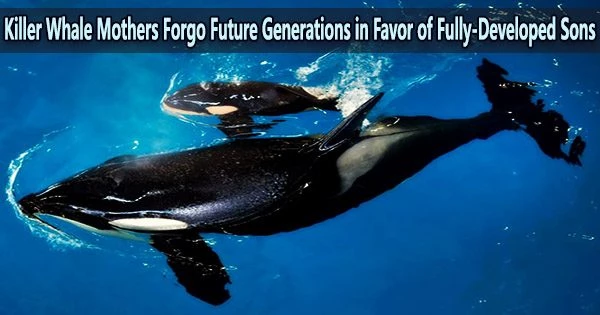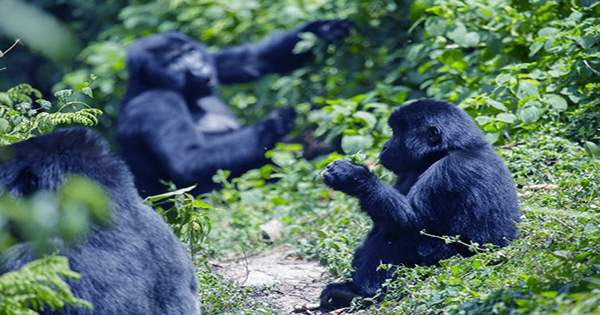Parents, and women in particular, frequently give up their own future achievement for the benefit of their children. According to a recent study published in Current Biology on February 8 (2023), killer whale mothers take this to an unexpected degree. Even after their boys are fully grown adults, they continue to forego their own reproductive success in order to care for them.
“We’ve known for over a decade that adult male killer whales relied on their mothers to keep them alive, but it had never been clear whether mothers pay a cost to do so,” said Michael N. Weiss (@CetaceanMike) of the University of Exeter, UK, and the Center for Whale Research in the US.
Now it is. In the coastal waters of Washington and British Columbia, Weiss and his colleagues conducted research on a population of killer whales known as the “southern resident” population. This population has been observed since 1976 by the Center for Whale Research.
They were interested in finding out whether adult whales’ care from their moms had any discernible financial costs, especially for males. They were able to examine directly how caring for sons and daughters affected females’ odds of subsequent reproduction thanks to the availability of comprehensive demographic data.
“The southern resident killer whale community presents an incredible opportunity to investigate these kinds of questions,” Weiss said. “Along with their bizarre social system, where both males and females stay with their mom for life, they are also one of the best studied wild populations of mammal anywhere in the world.”
Maybe more importantly, our study adds to the growing body of work showing the importance of animals’ social systems in determining demographic patterns. This is of central importance both for an understanding of our world, and to effectively conserve endangered species.
Michael N. Weiss
The number of weaned sons that survived and the females’ annual likelihood of having a live calf were shown to be strongly negatively correlated in their study of the available data. Those costs didn’t get any smaller as their sons grew older, either.
They claim that this disproves the idea that raising men into adulthood is economically expensive for reproduction because the expenses could not be accounted for by lactation or group composition effects. They claim that the findings indicate a previously unknown life history strategy and provide the first direct evidence for lifetime maternal investment in any species.
“The magnitude of the cost that females take on to care for their weaned sons was really surprising,” Weiss said. “While there’s some uncertainty, our best estimate is that each additional surviving son cuts a female’s chances of having a new calf in a given year by more than 50 percent. This is a huge cost to taking care of adult sons!”
The findings suggest that there are significant benefits to keeping adult sons alive and well, he added.
“Females gain evolutionary benefits when their sons are able to successfully reproduce, and our results indicate that these benefits are enough to outweigh a large direct cost,” Weiss explained.
According to the researchers, the findings could also have significant conservation implications. The highly endangered southern dwellers’ poor reproduction rates are a serious cause for concern.
The new findings provide light on a significant and yet unknown determinant of a female’s reproductive success, which may assist to guide future population viability studies.
“One big take-away is further evidence for how special (and maybe unique) the mother-son bond in killer whales is,” Weiss said. “Maybe more importantly, our study adds to the growing body of work showing the importance of animals’ social systems in determining demographic patterns. This is of central importance both for an understanding of our world, and to effectively conserve endangered species.”
They aim to learn more about the nature of the costs to mother whales in their subsequent research. They worry that women who continue to feed their fully grown boys may not be eating enough themselves.
Weiss noted that the southern resident killer whales are “very food-stressed.” Hence, restoring the Chinook salmon stock that the whales depend on is a top priority for conservation efforts.
















